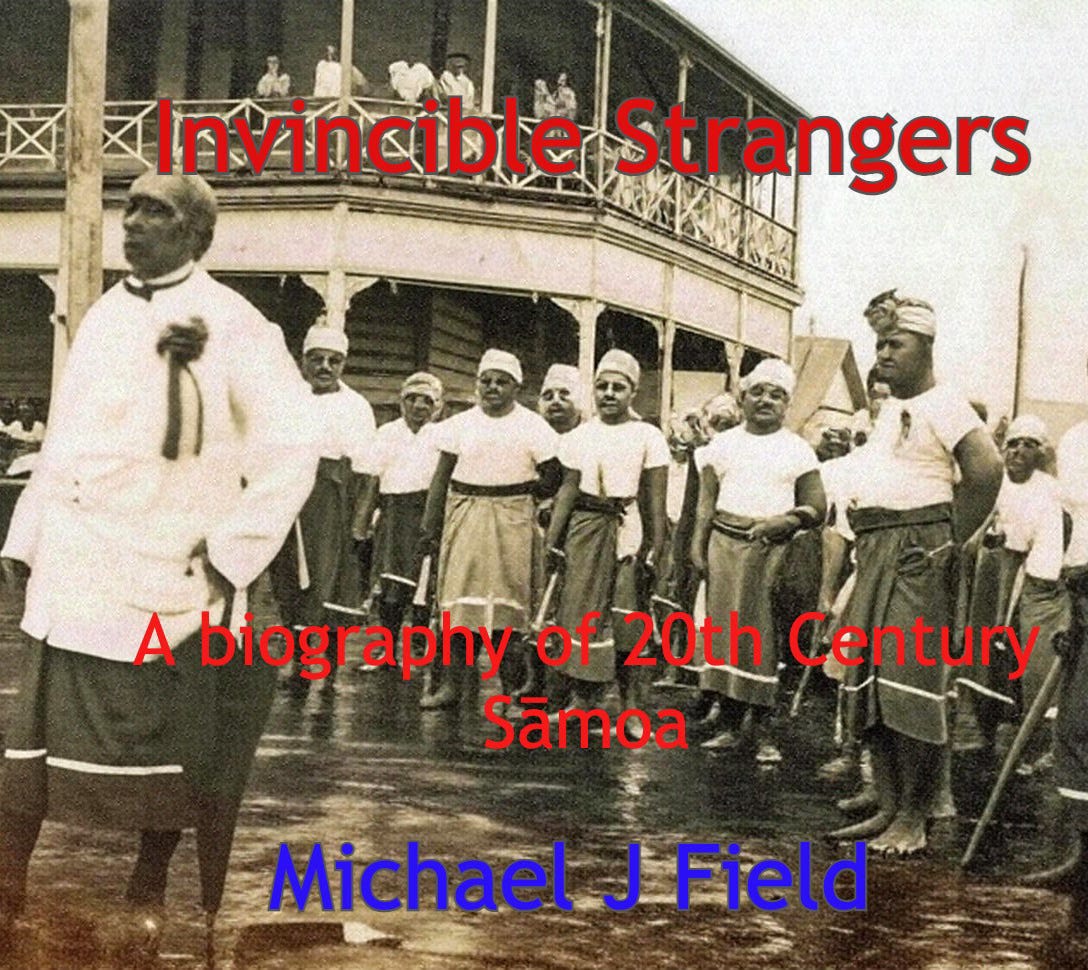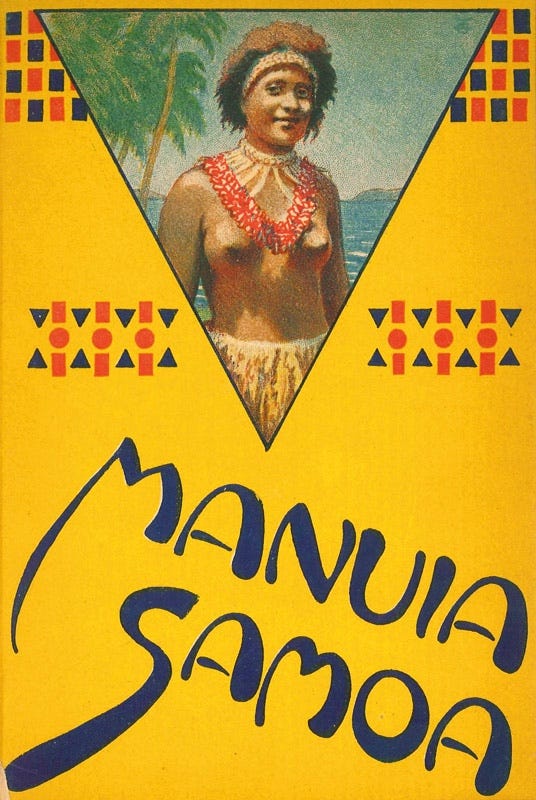Cocoa and Chinese
Invincible Strangers 18 Chapter 6
Cocoa and Chinese
Richard Deeken’s only book, Manuia Sāmoa! became a bestseller due in part to the partly clad unnamed Sāmoan woman on its cover. It suggested such women were available to any German fellow settling in Sāmoa.
Deeken, an asthmatic German army officer, told how Sāmoan women laughed whenever they met him with their melodic greeting 'tālofa'. Sāmoan women combined voluptuousness with natural innocence, Deeken said, seeing their dance as ‘the eruption of a natural fire … and not the refined monstrosity of sensual lust.’ Sex with subjugated people was an imperial perk, funded with cocoa. The South American bean had been taken across the tropical colonial world. First plantations in Sāmoa were started in 1883. Stevenson tried growing it and missionaries distributed cocoa seed. Encouraging cocoa growing would, Deeken said, attract more Germans to Sāmoa. A modest 10,000 marks was needed to start a plantation and it would take 10 years to recover the capital.
Deeken believed ‘colonies are a business venture or they are nothing’. Deeken, ignoring his doctor who told him the climate would worsen his asthma, moved to Sāmoa, establishing Deutsche Sāmoa Gesellschaft. He soon discovered that cocoa was labour intensive. In Deutsch-Neuguinea cocoa failed in 1890 while copra growers at Neu Pommern (Emma Coe’s kingdom) did better but only on the side of their main crop. Cocoa was little more than experimental in the Solomons, New Caledonia, Fiji, Vanuatu and Queensland, Australia.
Manuia Sāmoa! produced a rush of enquiries from Germans but Solf was said the book contained ‘quite false ideas,’ adding new settlers were ‘inferior elements’ with ‘too little education to find their way in the complicated mental processes of a Sāmoa brain.’ Uneducated settlers could not ‘immerse themselves in a foreign thought process and regarded the natives solely as objects of exploitation for their commercial endeavours,’ Solf said.
Deeken established a planters’ association when he realised that Sāmoans would not work at a ‘reasonable price’. The association demanded that Sāmoans be made to work. Newspaper stories in Germany, spun by Deeken, quoted a settler saying the ‘natives are getting more impudent every day as they are spoilt in every way; instead of treating them as children, according to their civilization, and punishing them properly when necessary, they have full freedom, which bears the worst fruits.’ Settler Fritz von Tyszka wrote to Solf saying it was encouraging Samoans to see themselves as ‘better than any of us whites who are not a government official.’
Keep reading with a 7-day free trial
Subscribe to Michael Field's South Pacific Tides to keep reading this post and get 7 days of free access to the full post archives.





